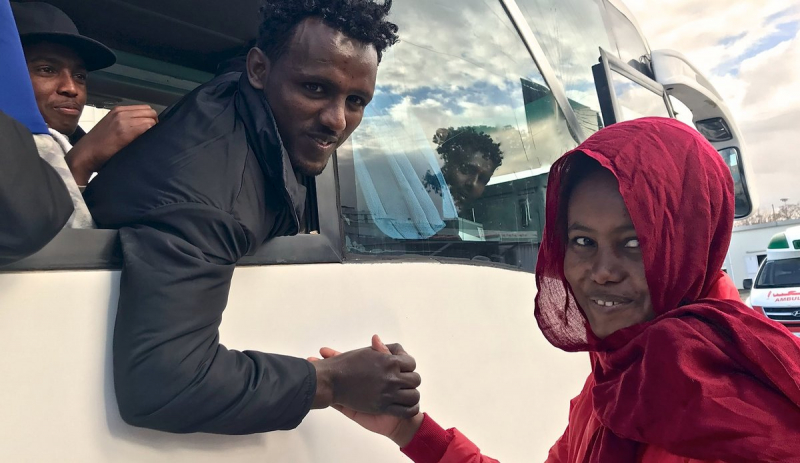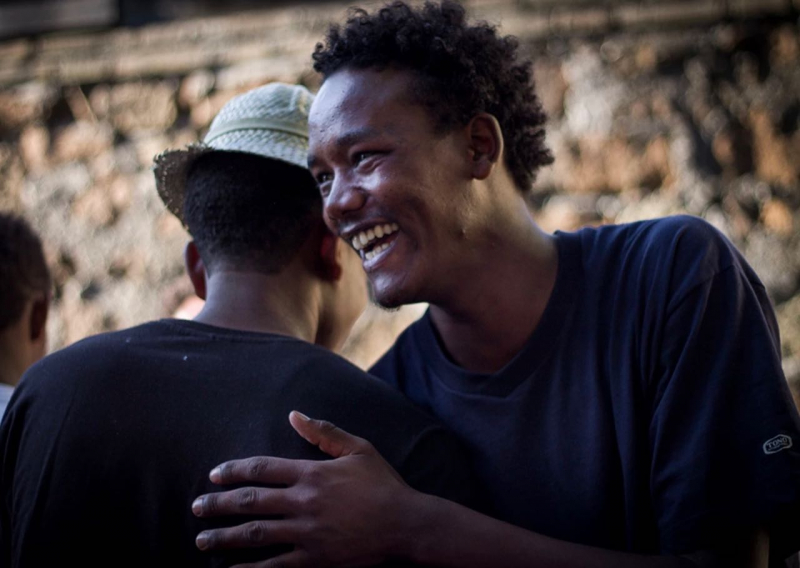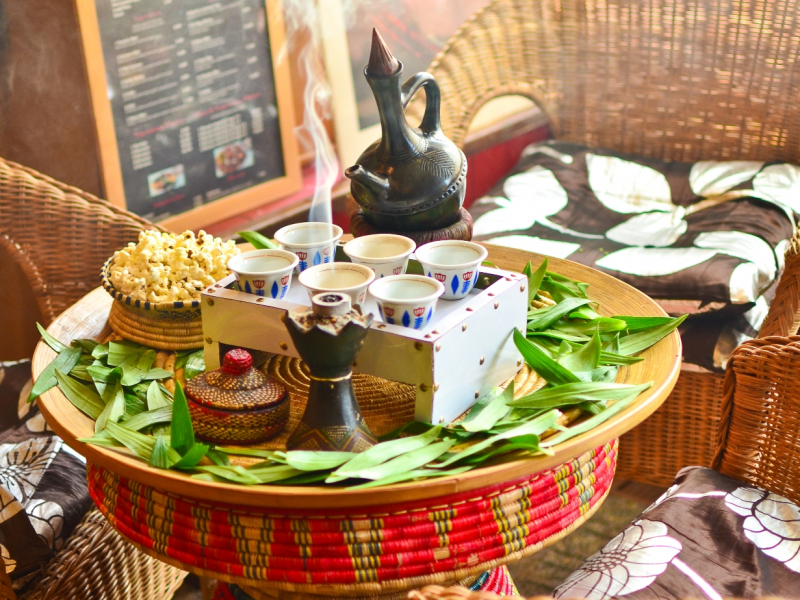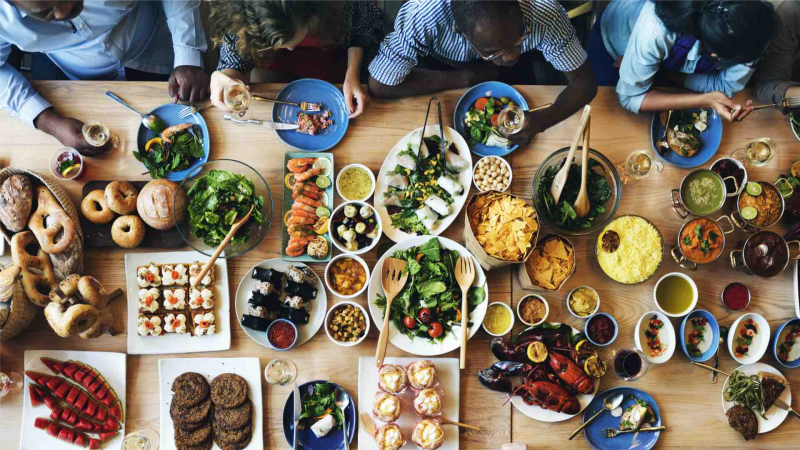Top 8 Eritrea Culture, Customs and Etiquette
Strategically located in the Horn of Africa, Eritrea is an African destination many people dream of visiting. It is well known for its diverse landscapes, but ... read more...it offers much more. After a 30-year war, Eritrea won independence from Ethiopia in 1993. Despite the tense relations with its neighbors and the repression faced at home, Eritrea remains one of the most desired destinations in Africa. This country has stunning scenery and magical hidden gems that you should be there to explore. Here is a list of some of Eritrea's culture, customs, and etiquette.
-
In Eritrea, greeting people is an art form. As you walk down the street, you come across someone you believe you know from somewhere. Passing by without acknowledging them is a violation of social norms. If you're certain you recognize them, you simply approach them and shake their hand.
It is customary to greet someone with a handshake and the word "Salam." Long, elaborate greetings are customary, particularly on special occasions. Women greet each other by ululating and kissing each other three times on each cheek. It is customary and polite to inquire about the well-being of one's spouse, children, and other family members. Each greeting is accompanied by a lot of genuine laughter and joy. Depending on whether you are addressing a single male, a single female, or a group of people, questions have different endings. Eye contact is typically seen as a sign of disrespect during the first encounter with someone. However, eye contact becomes more acceptable as people become more acquainted and develop a relationship.

https://www.google.com/ 
https://eritreahub.org/ -
One of Eritrea's cultures, customs, and etiquette, regardless of their ethnicity, is coffee. Coffee (Ge'ez ቡን būn) is offered when visiting friends, during festivities, or as a daily staple of life. If coffee is politely declined, then most likely tea ("shy" ሻሂ shahee) will be served. The coffee is brewed by first roasting the green coffee beans over hot coals in a brazier. Once the beans are roasted, each participant is given an opportunity to sample the aromatic smoke by wafting it towards them. The coffee roasting smoke is sometimes used to fill the rooms with a pleasant scent. This is followed by the grinding of the beans, traditionally in a wooden mortar and pestle.
The coffee grounds are then boiled in a special vessel known as a jebena. A jebena is typically made of clay, with a spherical base, a neck with a pouring spout, and a handle where the neck connects to the base. When the coffee boils up through the neck, it is poured into and out of another container to cool it before being poured back into the jebena until the process is repeated. To pour the coffee from the jebena, a filter made of horsehair or another material is placed in the jebena's spout to prevent the grounds from escaping.
The host pours coffee for everyone by moving the tilted jebena over a tray filled with small, handleless cups (finjal) without stopping until each cup is full. Some coffee will undoubtedly spill into the cup, but this is done to keep the coffee grounds from contaminating the brew. Each time, one extra cup is poured. The coffee grounds are brewed four times: the first round is called awel, the second kale'i, the third bereka ('to be blessed,' and the fourth "dereja." The "dereja" is not always poured, but it is usually poured when the elderly are present. The burning of traditional incense, such as frankincense or gum arabic, may also be part of the coffee ceremony.

https://africanpalacetoronto.wordpress.com/ -
Almost all marriages in Eritrea are arranged by families. Tigrinya's parents recommend marriage partners to form family alliances. The couple involved usually decides to marry, though some rural couples may not know each other before they marry. The bride is typically ten years younger than the groom; in the city, she will have completed secondary school before marrying.
The wedding celebration necessitates at least a week of food preparation and a month of brewing Suwa, a beer, and miyess, a honey mead. Following the morning ceremony, the bride's female relatives prepare food for a banquet. Following the receipt and display of the gifts, the couple enters the banquet to share a meal with their guests. Some couples in cities also cut a tiered wedding cake. The couple stays at home for two or three weeks, with meals provided by relatives. A couple usually lives with the husband's parents for at least two years after marriage before establishing their own home.
Wedding ceremonies in Islam include the bride arriving on a camel and a feast in which guests sit on mats and eat from bowls. Muslim men may have up to four wives if they can provide equally for each. Polygamy is becoming less common as a result of the financial burden of caring for multiple wives.
The family is more important than any of its individual members, who will forego personal desires for the sake of the group or future generations. A typical family has four or more children, and it is common for grandparents to live in the same house. The elderly are cared for by their adult children, who value their wisdom. Typically, village men are farmers. Women work on the farm and take care of the household. Some urban women work outside the home and hire housekeepers.
Village homes, usually made of stone, have thatched or metal roofs and concrete or dirt floors. City dwellings, made of stone or brick, have metal roofs, tiled floors, water, and electricity. Nomadic and seminomadic peoples (the Afar, Hedareb, Rashaida, and Tigre) have different lifestyles from the settled population. Accordingly, their homes are portable or built with whatever materials they find when they settle temporarily. Regardless of the style, houses are kept clean and neat.
https://www.youtube.com/ https://www.youtube.com/ -
Dining etiquette is one of the Eritrean cultures, customs, and etiquette that you should know. Always wait for the oldest person to take the food out of the dish, bless the food, or appoint someone to do the honors before eating. Traditional meals are typically eaten with the hands, but for foreigners, exceptions are frequently made. Do not eat the portion that is in front of you. Some people consider it impolite to ask for more.
Dining customs are similar to those found elsewhere in the region; you will be served food from a communal plate and are expected to eat with your right hand from the area of the plate directly in front of you. The Eritreans will welcome you ceremoniously with their coffee, which is widely regarded as some of the best in the world. The coffee is roasted and ground in your presence before being boiled and served heavily sweetened, black, and in small cups without handles.
Typically, you drink three cups, and fresh popcorn is often served with it. Common foods include porridge, often served with butter (and eaten, in this case. with a wooden spoon); kitfo, a kind of raw meat preparation served with cheese and cabbage; and kooch, a kind of bread made from a local plant. A very popular Eritrean bread used with many meals and dishes is injera, which is made from local grain, teff. It has a slightly sour taste and is often served with a stew of meats and vegetables called wat; you break off a piece of the teff and use it like a utensil. Interestingly, in Eritrea, Orthodox Christians, as is the case with observant Muslims, do not eat pork or any meat on Wednesdays and Fridays.

https://traveltank.com/ -
The most important national holidays all have something to do with the liberation war of 1962–1991. The most important is May 24, when the March of Asmara 1991 is commemorated (see Modern History). You celebrate for a week with music, entertainment, and festivities. On June 20, people who died in battle for their country are remembered as martyrs. The beginning of the liberation war is commemorated on September 1 in remembrance of an attack on the Ethiopian military in 1961.
Christian and Muslim holidays are both celebrated. Christians celebrate Christmas, Easter, and the thirteenth day, which commemorates Jesus' baptism. Meskel falls in September, when the Orthodox celebrate Saint Helena's discovery of the true cross in the 300s.
According to Countryman, Muslims observe the Prophet's birthday, id al-Fitr, which marks the end of the fasting month of Ramadan, as well as the sacrificial feast, id al-Adha, which commemorates Abraham's willingness to sacrifice his son to God. Muslim weekends are based on the lunar calendar and vary from year to year. New Year's Day, January 1st, is a holiday, as is International Women's Day, March 8th, and Workers' Day, May 1st.https://www.youtube.com/ https://www.youtube.com/ -
In Eritrea, customs and traditions differ according to the region and ethnic group. There are cultural differences, particularly between Christians in the highlands and Muslims in the lowlands. At the same time, the Italian colonial era and the long liberation war contributed to the formation of a shared Eritrean identity, which many people cherish. Despite the harsh living conditions, many people are proud of their country.
Culturally, Eritreans in the highlands are very similar to Ethiopians in the highlands. The Lowland people share customs and traditions with their neighbors across the border in Ethiopia, Djibouti, and Sudan. In general, education and occupation confer status, which allows for relatively easy social mobility. Respect for the elderly is essential.
According to Abbreviationfinder, Eritreans only use first names. The second name that looks like our last name is in fact the father’s first name. Whoever wants to be formal adds ato (sir) before a man’s first name and weizero (wife) before a woman’s name.
https://www.youtube.com/ -
Every ethnic community in the country has its own music and dance traditions. They are performed to the beat of locally made instruments such as kiras, watas (stringed instruments), tambourines, flutes, and so on. Songs and dances are an important part of Eritrean culture, and they are frequently used to commemorate major life events such as births and marriages. Modern contemporary music is also very popular in Eritrea's urban areas, particularly among the youth.
Art has played an important role in Eritrea's history, both during war and peace. Throughout the long and bitter struggle for independence, all forms of art made invaluable contributions to the victory. According to one foreign observer, Eritrean revolutionary music "served more than bullets." They echoed and disseminated the oppressed people of Eritrea's voice, as well as the legitimacy of their question, to a wider audience.
Eritrean revolutionary music instilled in Eritreans volunteerism and patriotism. It was critical in mobilizing Eritreans to take part in the revolution. Following independence, our artists continued the revolutionary tradition by creating many works of art that aided in the reconstruction and defense of the country. Thus, in Eritrea, art is not an indulgence but a necessary component of the country's social and political life. The importance of artistic activities in shaping and reshaping the course of history is recognized by Eritrean society.
https://www.youtube.com/ https://www.youtube.com/ -
Literature and the arts are important aspects of Eritrea's culture, customs, and etiquette. Folktales, legends, and traditional poems were the first works of Eritrean literature to be published. Between the fourth and eleventh centuries, the majority of the country's literature was written in Ge'ez. Later on, literature in Tigrinya was produced. It was heavily influenced by Christian missionaries from various European countries. During the Italian colonial period in the early twentieth century, the country's literature and culture were suppressed. However, under British rule, the country's culture was revitalized.
Thus, the first novels in Tigrinya were published in the second half of the twentieth century. In Eritrea, the most common paintings depict religious themes and fables in "storyboard" forms on a canvas, skin, or parchment base. Country churches are typically adorned with vibrant and dramatic murals. Ceramics are one of Eritrea's oldest crafts. Weaving and basket-making, jewelry-making, leather-work, wood carving, and other traditional crafts are also popular in the country.
https://www.youtube.com/





























